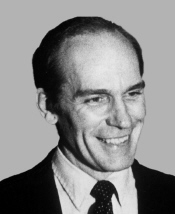Andrew Jacobs Jr. facts for kids
Quick facts for kids
Andrew Jacobs Jr.
|
|
|---|---|
 |
|
| Member of the U.S. House of Representatives from Indiana |
|
| In office January 3, 1975 – January 3, 1997 |
|
| Preceded by | William H. Hudnut III |
| Succeeded by | Julia Carson |
| Constituency | 11th District (1975-1983) 10th District (1983-1997) |
| In office January 3, 1965 – January 3, 1973 |
|
| Preceded by | Donald C. Bruce |
| Succeeded by | William H. Hudnut III |
| Constituency | 11th District |
| Member of the Indiana House of Representatives from Marion County |
|
| In office November 5, 1958 – November 9, 1960 |
|
| Preceded by | Multi-member district |
| Succeeded by | Multi-member district |
| Personal details | |
| Born | February 24, 1932 Indianapolis, Indiana, U.S. |
| Died | December 28, 2013 (aged 81) Indianapolis, Indiana, U.S. |
| Political party | Democratic |
| Spouses | 1. Kay Welsh 2. Martha Keys 3. Kimberly Hood Jacobs |
| Children | Andy and Steven |
| Alma mater | Indiana University |
| Military service | |
| Branch/service | United States Marine Corps |
| Years of service | 1950–1952 |
| Battles/wars | Korean War |
Andrew Jacobs Jr. (born February 24, 1932 – died December 28, 2013) was an American lawyer and politician. He was a member of the Democratic Party. Jacobs served as a state lawmaker in Indiana. He also spent thirty years as a Congressman in the U.S. House of Representatives. His father, Andrew Jacobs, was also a Congressman.
Contents
Early Life and Military Service
Andrew Jacobs Jr. was born in Indianapolis, Indiana. He graduated from Shortridge High School in 1949. After high school, he joined the United States Marine Corps. He served as an infantry soldier during the Korean War. He was a combat veteran who was injured during his service.
After his military service, Jacobs went to Indiana University. He earned a bachelor's degree in Business in 1955. He then earned a law degree (LL.B.) from Indiana University in 1958. After finishing law school, he started his own law practice.
Starting a Political Career
Jacobs began his political journey in Indiana. From 1959 to 1960, he served in the Indiana House of Representatives. This was his first experience as a lawmaker.
Joining the U.S. Congress
In 1964, Andrew Jacobs Jr. was elected to the United States House of Representatives. He was part of a big win for the Democratic Party that year. In Congress, he joined the House Judiciary Committee. On this committee, he helped write the important Voting Rights Act of 1965. This law helped protect the right to vote for all Americans. Jacobs was also active in the Civil Rights Movement. This movement worked to end unfair treatment and discrimination.
Speaking Out Against War
Jacobs was one of the first politicians to speak out against the Vietnam War. He even led an all-night discussion in the House of Representatives. This was the first time the war was openly criticized in Congress. He believed that politicians who supported war but had not served in the military were "war wimps."
Returning to Congress
In 1972, Jacobs lost his seat in Congress to Bill Hudnut. But in 1974, he won it back from Hudnut. After returning to Congress, he was appointed to the United States House Committee on Ways and Means. This committee deals with taxes and other money matters. He later became the chairman of the Subcommittee on Social Security.
Ideas and Reforms
In 1985, Jacobs suggested a change to the U.S. national anthem. He proposed that "America the Beautiful" should replace "The Star-Spangled Banner".
Jacobs also played a key role in changing Social Security in the 1980s. Social Security is a government program that provides money to retired people and others. He helped make Social Security an independent government organization. He also wrote a law to make sure that the money collected for Social Security was properly saved.
Retirement and Legacy
Andrew Jacobs Jr. retired from Congress in 1997. He was known for working well with both political parties. He was also known for his sense of humor. He supported Julia Carson to take his place in Congress.
After retiring, Jacobs taught political science at Indiana University – Purdue University Indianapolis. He wrote two books that criticized American military actions. He also wrote articles for NUVO Magazine. He was against the U.S. military being involved in wars in Iraq and Afghanistan.
Jacobs passed away on December 28, 2013, at his home in Indianapolis. He was 81 years old. He was survived by his wife, Kim Jacobs, and his two sons.
 | Delilah Pierce |
 | Gordon Parks |
 | Augusta Savage |
 | Charles Ethan Porter |

